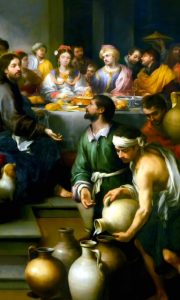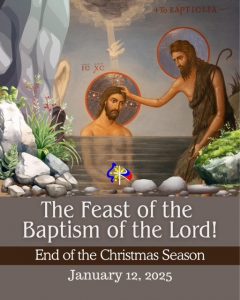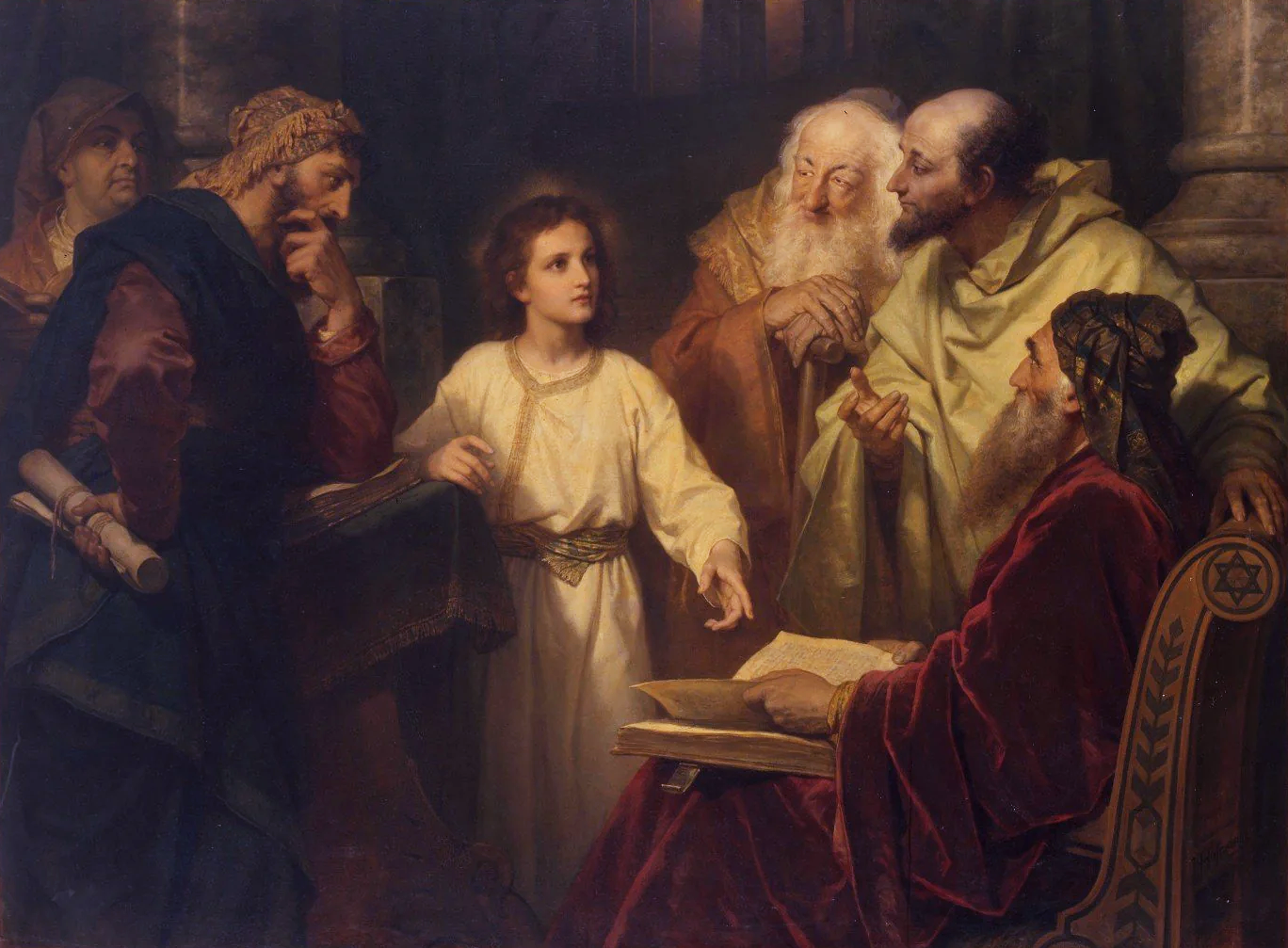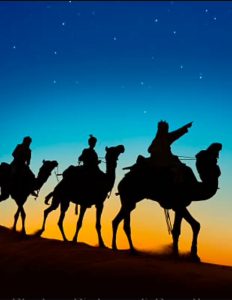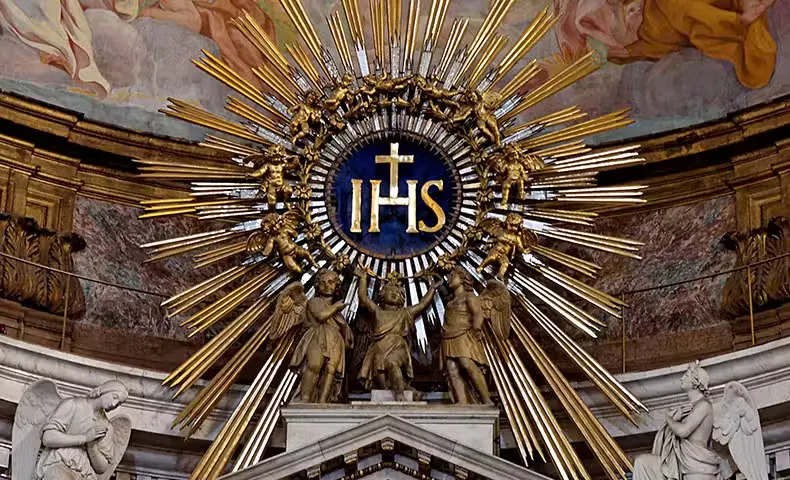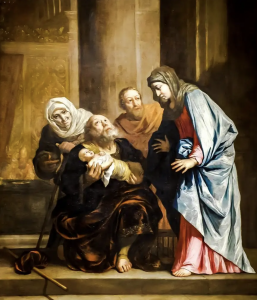When I was in the seminary, every summer vacation I would frequently go home to spend quality time with my parents, family, relatives, former classmates and friends. During Sundays, I would volunteer to serve in my home parish and even up to the present, as a priest, I continue doing it. It has always been part of my normal life looking forward to giving back something to my parish community. Today, we hear that Jesus is back in His hometown expecting the people to get to know Him in faith, where folks had to listen to and then accept Who He was, not only as a wonder worker, healer and preacher, but the Goodnews, the coming of the Messiah.
The readings today remind us of where we should place our attention, especially to reflect on the Word of God, a decision that is worth making. To discern and to reflect is already a part of my ordinary routine, an acquired habit reading the scripture in order to have a deeper understanding of God’s plan.
In today’s first reading, taken from the Prophet Nehemiah, the chosen people just returned from exile; therefore, they were starting to rebuild their lives and even their Jewish religious tradition. They might probably be in the public assembly called synagogue to read the Law, or the Torah, led by Ezra during that period. Upon hearing the Torah proclaimed in their midst, they were weeping because they had realized their own unfaithfulness; however, Ezra reminded them that in proclaiming the word of God, they were told not to weep and be sad, “for rejoicing in the Lord must be your strength.” (v.10)
In the 2nd reading today, from the first reading to the Corinthians, St. Paul instructs them about the extraordinary event that happened to them through their reception of their baptism: “For in one Spirit we were all baptized into one body, whether Jews or Greeks, slaves or free persons, and we were all given to drink of one Spirit.” (v.13) So, receiving of the Spirit had profound implication for the Corinthians. Moreover, St. Paul also explained well about the Church comprising of many parts of the same body, many gifts of the same source. Our differences must be a call to a celebration by ignoring the wonder of our own uniqueness but affirming our power of being one body. I believe that it is good that St. Paul reminds us that each part has unique gifts and a unique purpose in manifesting the one body.
The gospel from St. Luke narrates to us the account about Jesus reading from the scroll in front of the assembly and the teachers of the Law, which is customary according to the tradition of the Jews. Thus, according to the Prophet Isaiah, “Today this Scripture passage is fulfilled in your hearing.” It would be wonderful to profoundly reflect on and find inspiriting insights for our spiritual development.
First, Jesus takes the words from Isaiah saying, “The Spirit of the Lord is upon me because he has anointed me.” I believe that it was the movement of the Holy Spirit that happened during the encounter of Jesus with the experts of the Law. How many of us grasp the implication of these words of Jesus? It means that Jesus’ life is totally in union with the life-giving role of the Spirit. Jesus also understood very well that God had chosen Him to speak on behalf of His Father. The Spirit Jesus received is the same Spirit we too received from our baptism and confirmation. Now that we belong to the “Body of Christ,” so like Jesus we are called to proclaim Christ to the world.
Second, the best response in a prayerful way is to listen and be obedient. Our maturity to listen and to act according to the ways of Jesus will give us the freedom to assist Jesus in the recovery of sight, in particular, to those who have been blinded by their image of pride. Having been released from this unusual behavior, we become effective proclaimers of the word through good examples and manner of life. We can preach the values of the gospel, even without talking or using words, according to St. Francis, because we are preaching the gospel through good works or actions, keeping this verse from Psalm 34:6, “Look up at the Lord with gladness and smile; your face will never be shamed.”
Third, “Today this scripture passage is fulfilled in your hearing.” (v.21). What does it mean that the Scripture has been fulfilled in Christ? Jesus comes for all people and teaches, not only “whole regions” or the Israelites, but the entire world today. Our understanding is to listen, to be open to the Spirit and to hope in the fulfillment of this promise slowly unfolding before our eyes through Jesus Christ. Sometimes we can easily get caught up in the noise of life: work, family, political and economic issues, natural calamities, etcetera, unknowingly and being unmindful of God’s presence. We need persevering prayer to put aside those worldly distractions and follow Christ faithfully. So, with the help of God, we will continue to look forward to the great spiritual journey.
Brothers and sisters, those words from the Responsorial Psalm 19, animate us with joy as we say, “Your words, O Lord, are Spirit and Life.” Let us be mindful that the law of God is not written on scrolls but on our hearts.
God bless you.
Fr. Arlon, osa
—————–
El Dictado del Corazón
Tercer Domingo del Tiempo Ordinario, Año C
- Nehemías 8:2-4a, 5-6, 8-10
- Salmo 19:8, 9, 10, 15
- 1 Corintios 12:12-30
- Lucas 1:1-4; 4:14-21
Cuando estaba en el seminario, cada verano aprovechaba las vacaciones para ir a casa a pasar tiempo de calidad con mis padres, familia, parientes, antiguos compañeros de clase y amigos. Los domingos, me ofrecía como voluntario para servir en mi parroquia y, hasta el día de hoy, como sacerdote, sigo haciéndolo. Siempre ha sido parte de mi vida normal, el poder devolver algo a mi comunidad parroquial. Hoy, escuchamos que Jesús regresa a su ciudad natal, esperando que lo reconozcan en la fe, que la gente tuviera que escucharlo y luego aceptar quién era Él, no solo como un hombre de prodigios, que sanaba o que predicaba, sino como la Buena Nueva, la venida del Mesías.
Las lecturas de hoy nos recuerdan dónde debemos poner nuestra atención, especialmente para reflexionar sobre la Palabra de Dios, una decisión que vale la pena tomar. Discernir y reflexionar ya es parte de mi rutina cotidiana, un hábito adquirido al leer las escrituras para tener una comprensión más profunda del plan de Dios.
La primera lectura de hoy, tomada del libro del Profeta Nehemías, nos relata que el pueblo elegido acababa de regresar del exilio; por lo tanto, comenzaban a reconstruir sus vidas y hasta su tradición religiosa judía. Probablemente se encontraban en la asamblea pública, llamada sinagoga, para leer la Ley, o la Torá, bajo la dirección de Esdras en esa época. Al escuchar la proclamación de la Torá en medio de ellos, comenzaron a llorar porque se dieron cuenta de su propia infidelidad. Sin embargo, Esdras les recordó que, al proclamar la palabra de Dios, se les decía que no lloraran ni se pusieran tristes, “porque el gozo en el Señor será su fuerza” (v.10).
La segunda lectura, tomada de la primera carta de San Pablo a los Corintios, nos enseña sobre el extraordinario evento que ocurrió en ellos con la recepción de su bautismo: “Porque en un solo Espíritu todos fuimos bautizados para formar un solo cuerpo, ya seamos judíos o griegos, esclavos o libres, y a todos se nos dio a beber de un solo Espíritu” (v.13). Así, recibir el Espíritu tuvo una implicación profunda para los Corintios. Además, San Pablo les explicó que la Iglesia está compuesta por muchas partes de un mismo cuerpo, muchos dones de una misma fuente. Nuestras diferencias deben ser un llamado a la celebración, no ignorando la maravilla de nuestra unicidad, sino afirmando el poder de ser un solo cuerpo. Creo que es bueno que San Pablo nos recuerde que cada parte tiene dones únicos y un propósito único al manifestar un solocuerpo.
El Evangelio de San Lucas nos narra el episodio en que Jesús lee el volumen del Profeta Isaías en medio de la asamblea y los maestros de la Ley, siguiendo la costumbre según la tradición judía. Así, según el Profeta Isaías, Jesús dice: “Hoy se cumple esta escritura que acaban de oír” (v.21). Es importando profundizar y reflexionar sobre estas palabras y encontrar la inspiración para nuestro desarrollo espiritual.
Primero, Jesús toma las palabras de Isaías diciendo: “El Espíritu del Señor está sobre mí porque me ha ungido”. Creo que fue el movimiento del Espíritu Santo lo que sucedió durante el encuentro de Jesús con los expertos de la Ley. ¿Cuántos de nosotros comprendemos la implicación de estas palabras de Jesús? Esto significa que la vida de Jesús está completamente unida con el rol vivificante del Espíritu. Jesús también entendió muy bien que Dios lo había elegido para hablar en nombre de Su Padre. El Espíritu que Jesús recibió es el mismo Espíritu que nosotros recibimos en nuestro bautismo y confirmación. Ahora que pertenecemos al “Cuerpo de Cristo”, como Jesús, estamos llamados a proclamar a Cristo al mundo.
Segundo, la mejor respuesta de manera orante es escuchar y ser obedientes. Nuestra madurez para escuchar y actuar de acuerdo con los caminos de Jesús nos dará la libertad para ayudar a Jesús en la recuperación de la vista, en particular, a aquellos que han quedado cegados por su imagen de orgullo. Al liberarnos de este comportamiento inusual, nos convertimos en proclamadores efectivos de la palabra a través de buenos ejemplos y maneras de vida. Podemos predicar los valores del Evangelio incluso sin hablar ni usar palabras, como decía San Francisco, porque estamos predicando el Evangelio a través de buenas obras o acciones. Mantengamos este versículo del Salmo 34:6: “Miren al Señor con alegría y sonrían; su rostro nunca se avergonzará.”
Tercero, “Hoy se cumple esta escritura que acaban de oír” (v.21). ¿Qué significa que las Escrituras se han cumplido en Cristo? Jesús viene para todos los pueblos y enseña no solo “todas las regiones” o a los israelitas, sino a todo el mundo hoy. Nuestro entendimiento debe ser escuchar, estar abiertos al Espíritu y esperar el cumplimiento de esta promesa que se despliega lentamente ante nuestros ojos a través de Jesucristo. A veces, fácilmente podemos quedarnos atrapados en el ruido de la vida: trabajo, familia, problemas políticos y económicos, calamidades naturales, etc., sin darnos cuenta y sin estar conscientes de la presencia de Dios. Necesitamos perseverar en la oración para apartar esas distracciones mundanas y seguir a Cristo fielmente. Así que, con la ayuda de Dios, continuaremos esperando con esperanza el gran viaje espiritual.
Hermanos y hermanas, esas palabras del salmo responsorial 19 nos animan con alegría mientras decimos: “Tus palabras, Señor, son espíritu y vida.” Seamos conscientes de que la ley de Dios no está escrita en volúmenes, sino en nuestros corazones.
Dios los bendiga.
P. Arlon, osa


